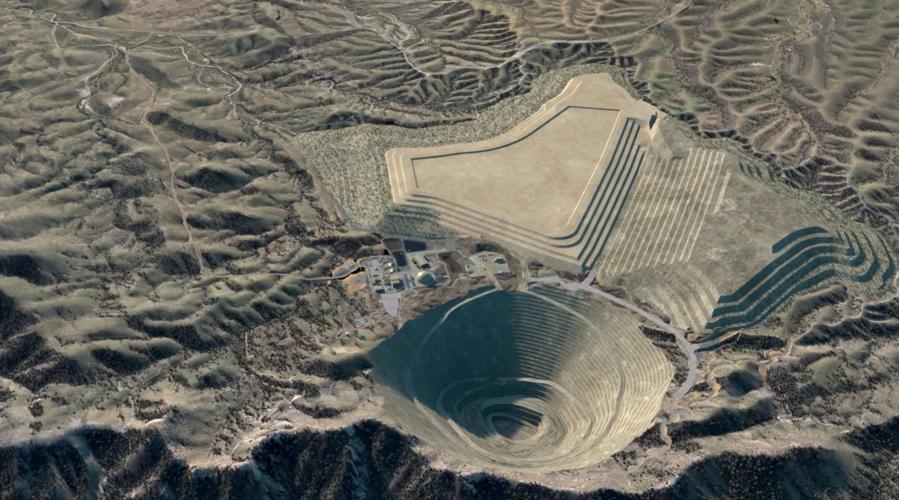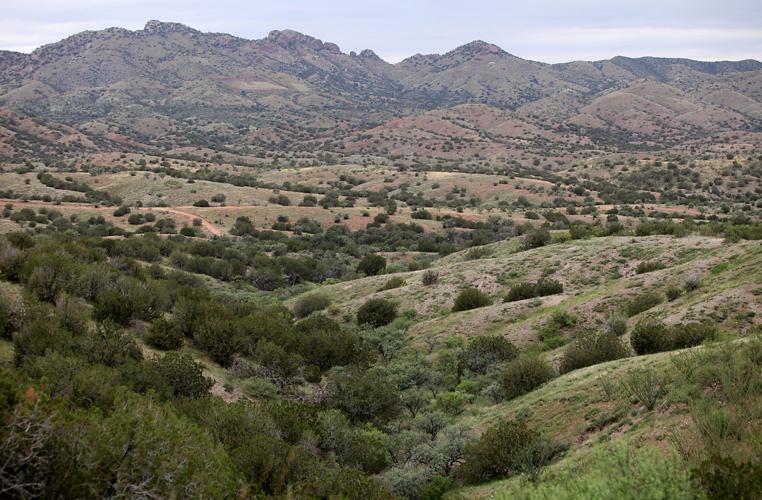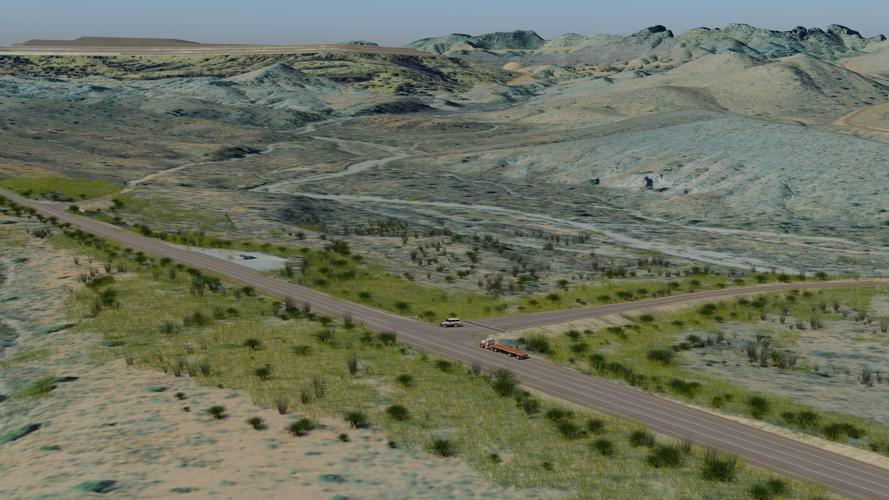Opponents of the Rosemont Mine are asking a federal judge to block its construction after the mining company said it would start early work on the project next month.
The opponents are arguing that the mine’s planned early work — which includes drilling, road-building and laying utility lines — will cause “irreparable harm” to biologically rich areas and culturally sensitive archaeological sites.
Attorneys for three tribes and four environmental groups including Save the Scenic Santa Ritas and the Center for Biological Diversity filed separate requests for an injunction Wednesday night in U.S. District Court in Tucson. They have already filed five lawsuits against three federal agencies seeking to overturn approvals of the project.
The injunction requests come about a week after Hudbay Minerals Inc. provided the opponents with formal notice of plans to start work in 30 days.
The injunction effort seeks to stop mine construction until the merits of the lawsuits can be decided. The suits target approvals of Rosemont by the U.S. Forest Service, the Army Corps of Engineers and the U.S. Fish and Wildlife Service.
If the injunction efforts fail, Rosemont will have cleared probably the last of many legal hurdles toward becoming the third-largest copper mine in the U.S.
It would be built on private and federal land in the Santa Rita Mountains, 30 miles southeast of Tucson. It would result in the clearing of 5,400 acres for a project that would create 500 high-paying jobs.
In an investor presentation this month, Hudbay said it plans to spend $144 million in the first year of a three-year construction period.
At a federal court hearing last month, mining company attorney Norm James said the company has already invested more than $850 million at Rosemont. The company plans to start mining in 2022.
Stuart Gillespie, an attorney for the three tribes, said Thursday that James agreed at a telephonic conference this week of attorneys in the case that the company will not start the utility-line work until mid-July and the drilling and other work at the mine site until mid-August.
Hudbay said Thursday through a spokeswoman that Gillespie is misrepresenting what James said but didn’t provide its own version of James’ comments.
In a statement this week, Hudbay said, “We will continue to work with the judge, agencies, and plaintiffs in the development of this state-of-the-art modern mine.”
Opponents’ legal arguments
The tribes — the Tohono O’odham, the Pascua Yaqui and the Hopi — argued in their motion that there’s no doubt their interests will suffer immediate and irreparable harm.
The mine’s drilling of 36 holes, which James has termed “minor” work, and building new intersections at Arizona 83 to improve access to the mine site will be “scraping away the land adjacent to prehistoric sites and degrading this ancient place of prayer and solitude,” the tribes’ court papers said.
The environmentalists’ motion for injunction cited Hudbay’s plans to build a 20-inch diameter water pipeline and a high voltage transmission line from Sahuarita over the Santa Rita Mountains.
Later, in the fall, Hudbay plans to start significant clearing and grubbing — removal of stumps and roots — of vegetation at the mine site, the injunction motion said.
The opponents quoted Julia Fonseca, a Pima County geologist, as saying removal of topsoil and other soils for that work will destroy soil structure. These soil formations are the result of processes taking tens of thousands of years, and mine reclamation can’t replace what’s lost, said Fonseca, the county’s environmental planning manager.
The clearing and grubbing work also will destroy a wide array of plant and animal communities, the tribes said.
The tribes said the mining company would grade “native material,” including contaminated topsoil, directly into federally regulated washes, polluting them with toxic metals and permanently altering their hydrology.
Overall, “within just four months, Rosemont plans to systematically clear every trace of the tribes’ cultural history from the path of the mine, desecrating burial sites and removing ancient artifacts,” the tribes said.
“Individually and collectively, (these) activities will degrade this cultural landscape and its beauty, desecrate this place of prayer, and forever destroy our ancestral heritage,” Austin Nunez, the O’odham’s San Xavier District chairman, said in a declaration accompanying the tribes’ injunction request. “There is no way to undo these harms to the land. There is no way to undo these harms to who the Tohono O’odham are as a people.”
Hearing set for July 10
Proving irreparable harm is one of several legal standards that opponents must meet to obtain an injunction. They must also show that they’re likely to prevail on the merits of the case and that an injunction is in the public interest.
In the past, the agencies and Hudbay have promised and approved numerous mitigation measures aimed at compensating for the project’s damages.
The mining company and the agencies must give the judge their first responses to the opponents’ allegations by June 5. After the parties exchange several more legal briefs, Hudbay and the agencies must make their final responses by July 15.
U.S. District Judge James Soto has tentatively scheduled a hearing on the injunction request on July 10.
As for the lawsuits themselves, Soto said at an April 18 court hearing that he’s in no position to rule at “any time in the very near future” on their merits. He cited the complexity of the issues and the large volume of documents involved.
He said there are about 50,000 documents available regarding the lawsuits against the Forest Service, including a 2,400-page final Rosemont environmental impact statement and 4,000 pages of public comments on the draft statement.
Plus, in the Army Corps lawsuits, “the record contains tens of thousands of pages that will need to be looked at,” Soto said.
“The record in this case is enormous. I think everybody agrees that it’s a very voluminous record,” the judge said. “ The issues do appear to be very serious.”






